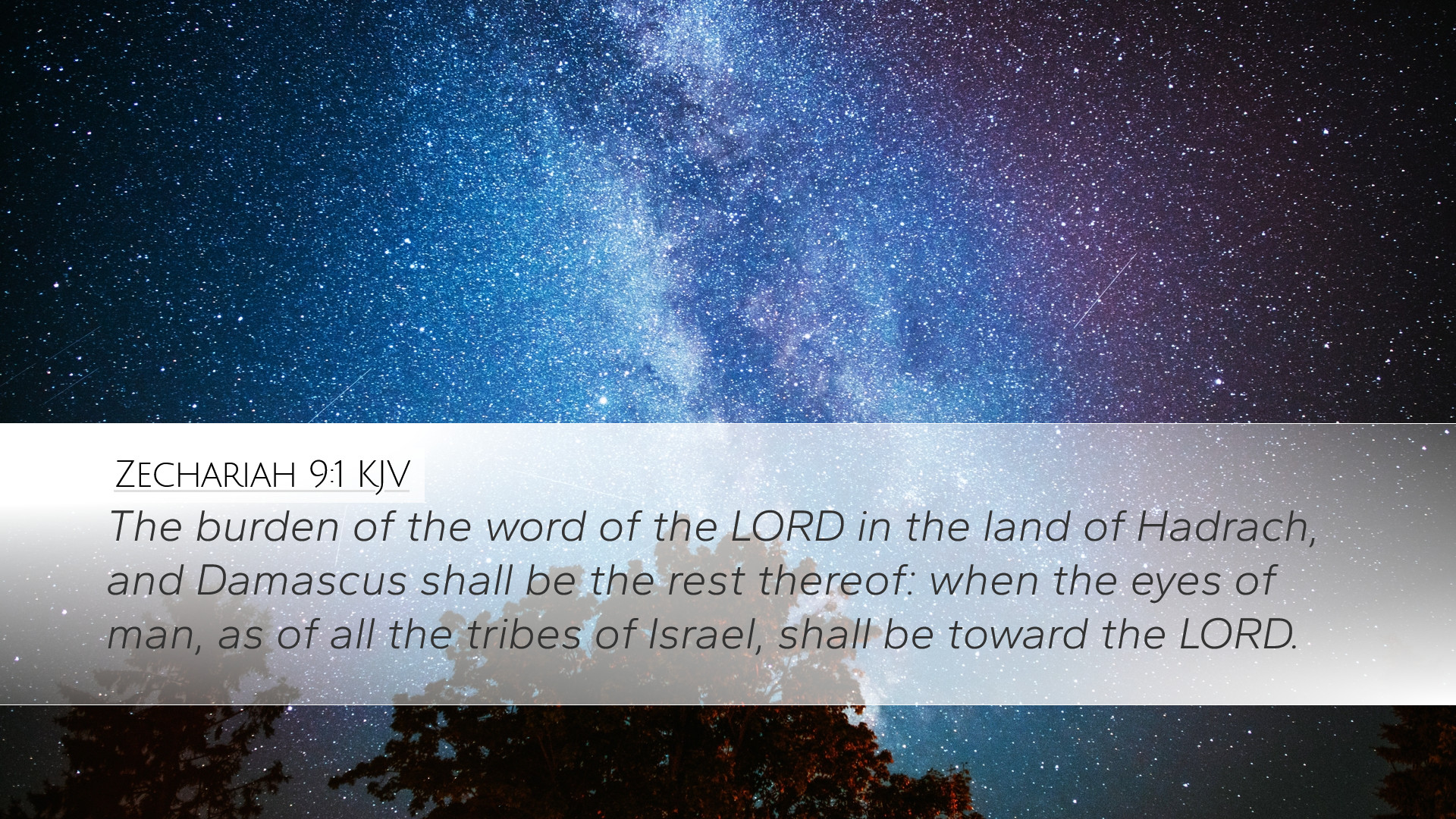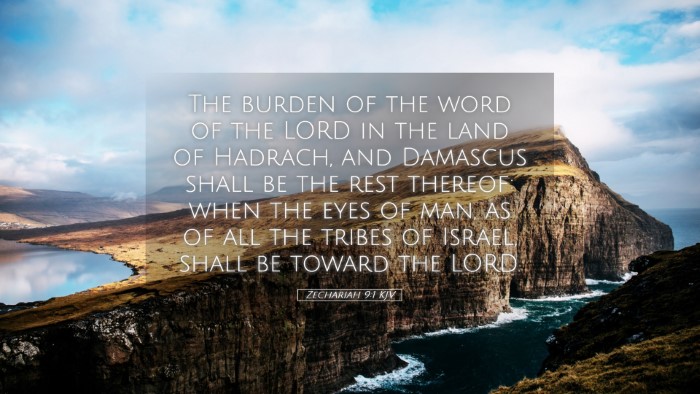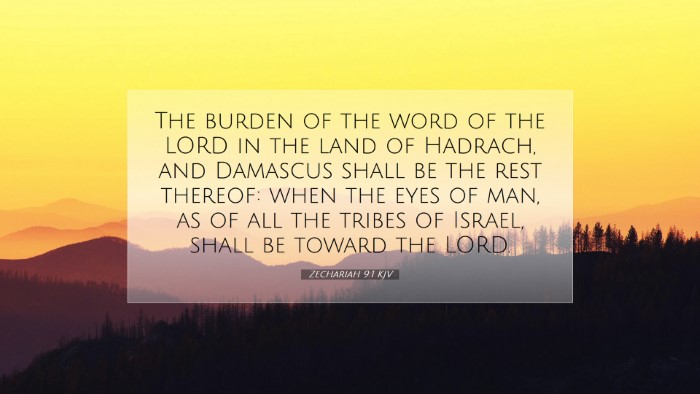Old Testament
Genesis Exodus Leviticus Numbers Deuteronomy Joshua Judges Ruth 1 Samuel 2 Samuel 1 Kings 2 Kings 1 Chronicles 2 Chronicles Ezra Nehemiah Esther Job Psalms Proverbs Ecclesiastes Song of Solomon Isaiah Jeremiah Lamentations Ezekiel Daniel Hosea Joel Amos Obadiah Jonah Micah Nahum Habakkuk Zephaniah Haggai Zechariah MalachiZechariah 9:1
Zechariah 9:1 KJV
The burden of the word of the LORD in the land of Hadrach, and Damascus shall be the rest thereof: when the eyes of man, as of all the tribes of Israel, shall be toward the LORD.
Zechariah 9:1 Bible Commentary
Commentary on Zechariah 9:1
Zechariah 9:1 states:
"The burden of the word of the Lord in the land of Hadrach, and Damascus shall be the rest thereof: when the eyes of man, as of all the tribes of Israel, shall be toward the Lord."
Contextual Background
This verse opens a section of Zechariah often interpreted as a prophetic declaration concerning the nations surrounding Israel. The prophet conveys a message regarding judgment and restoration, initiating with the cities that threaten Israel's peace.
Divine Burden and Prophecy
Matthew Henry notes that the phrase "the burden of the word of the Lord" indicates a weighty message entrusted to the prophet. The word "burden" reflects the seriousness and the divine origin of the prophecy; it bears the weight of God's impending action against the nations.
Albert Barnes reiterates that this burden serves to communicate God's judgments on the surrounding nations, primarily focusing on Hadrach and Damascus. These places were historically significant, symbolizing threats to Israel's existence but also highlighting the universality of God's oversight.
The Significance of Hadrach
Hadrach, a city mentioned here, is noted by Adam Clarke as spawning significance for its geographic and political relevance. Interpretatively, it stands as a representation of nations and powers that oppose God’s kingdom.
Henry elaborates that the divinely appointed vulnerability of Hadrach lies in its perceived certainty of rest and peace. However, God's presence shall soon console His people while equally signaling the judgment upon rebellion.
Focus on Damascus
Damascus, one of the prominent cities, is also highlighted within this prophetic message. Clarke expands this notion by asserting that Damascus serves as a representation of all nations, signifying God's universal judgment awaiting those who refuse His sovereignty.
Barnes mentions that the mention of Damascus also signifies the geographical scope of God’s rule extending beyond Israel and serving to elevate God's authority over the larger geopolitical landscape.
The Spiritual Implications
As Zechariah's message unfolds, a key aspect involves the "eyes of man" turning towards the Lord. Henry expresses that this represents a posture of reliance and expectation. It is a call for a greater awareness among all peoples, particularly the tribes of Israel, to recognize the movement of God amidst their historical realities.
Clarke further reflects on this notion, noting the important shift of attention away from political powers towards the sovereignty of God. The posture of seeking God is crucial for both individuals and nations, emphasizing dependence on divine guidance amid turmoil.
Application for God's People
For pastors and theologians, this passage holds rich theological implications. It asserts the importance of declaring God’s sovereignty in the face of worldly challenges. As believers, there is a dual call — both to recognize God’s work in world events and to focus the community of faith on Him for guidance and strength.
Henry points out that when Israel turns their hearts towards God, they find rest and divine favor despite external threats. This stands as an exhortation to modern believers, urging them to reflect on their focus and allegiance during times of uncertainty.
Conclusion
Zechariah 9:1 serves as a powerful reminder of the importance of recognizing God as the ultimate authority. Through the imagery of Hadrach and Damascus, we are prompted to reflect on the nation’s responsibility to turn their eyes upon the Lord. In this profound moment of prophetic insight, the message transitions from warning to hope, assuring that restoration awaits those who look to God.


